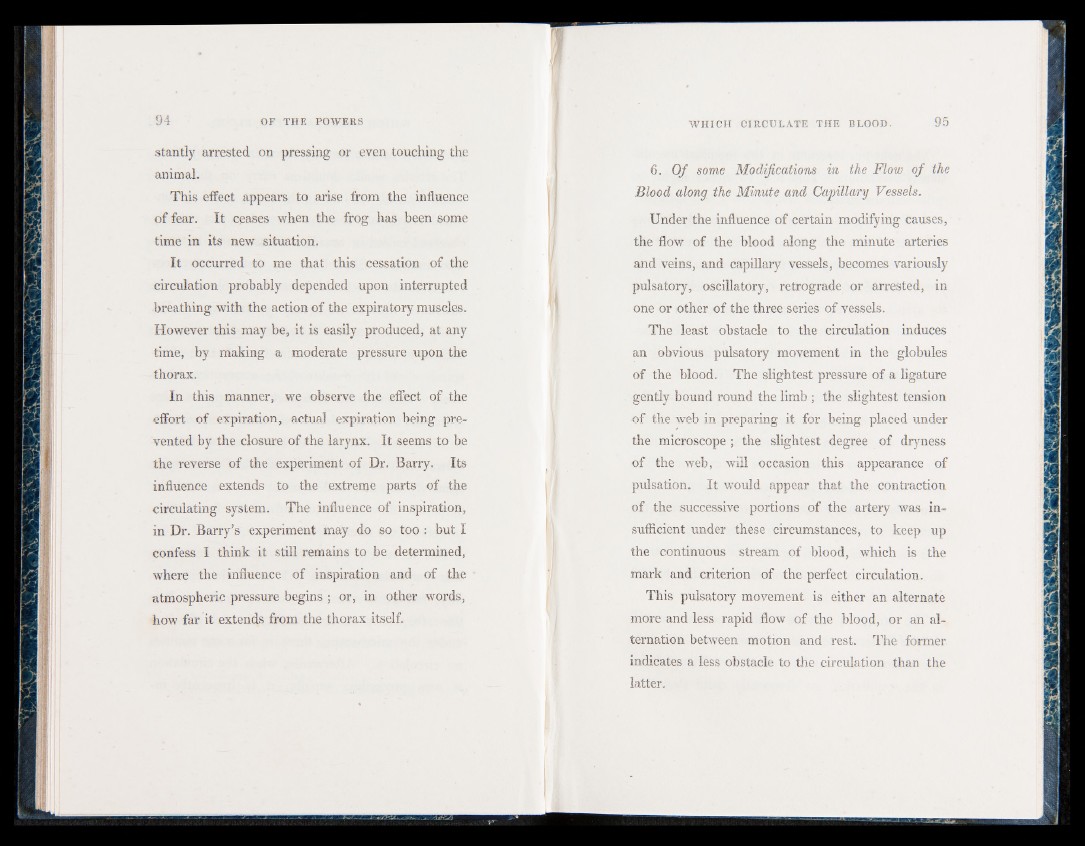
stantly arrested on pressing or even touching the
animal.
This effect appears to arise from the influence
of fear. It ceases when the frog has been some
time in its new situation.
It occurred to me that this cessation of the
circulation probably depended upon interrupted
breathing with the action of the expiratory muscles.
However this may be, it is easily produced, at any
time, by making a moderate pressure upon the
thorax.
In this manner, we observe the effect of the
effort of expiration, actual expiration being prevented
by the closure of the larynx. It seems to be
the reverse of the experiment of Dr. Barry. Its
influence extends to the extreme parts of the
circulating system. The influence of inspiration,
in Dr. Barry’s experiment may do so too : but I
confess I think it still remains to be determined,
where the influence of inspiration and of the
atmospheric pressure begins ; or, in other words,
how far it extends from the thorax itself.
6. Of some Modifications in the Flow of the
Blood along the Minute and Capillary Vessels.
Under the influence of certain modifying causes,
the flow of the blood along the minute arteries
and veins, and capillary vessels, becomes variously
pulsatory, oscillatory, retrograde or arrested, in
one or other of the three series of vessels.
The least obstacle to the circulation induces
an obvious pulsatory movement in the globules
of the blood. The slightest pressure of a ligature
gently bound round the limb ; the slightest tension
of the web in preparing it for being placed under
the microscope ; the slightest degree of dryness
of the web, will occasion this appearance of
pulsation. It would appear that the contraction
of the successive portions of the artery was insufficient
under these circumstances, to keep up
the continuous stream of blood, which is the
mark and criterion of the perfect circulation.
This pulsatory movement is either an alternate
more and less rapid flow of the blood, or an alternation
between motion and rest. The former
indicates a less obstacle to the circulation than the
latter.